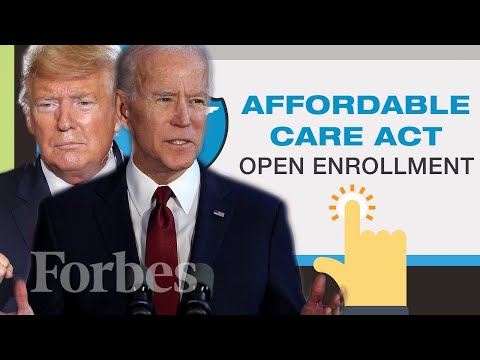Universal health care is a long contested political point in the United States. And in 2020, it seems that its future is as uncertain as ever.
The Obama administration passed the Affordable Care Act (also referred to as the “ACA” or “Obamacare”) in 2010, marking it as one of the largest health care reforms in modern history. The law greatly expanded health care to citizens by providing subsidies and requiring universal enrollment. In 2010, 22.3% of Americans were uninsured; in 2016, just two years after states implemented the ACA and expanded Medicaid, that number dropped to 12.4%.
Under Trump, key parts of the law have also been undercut. The administration has cut back on spending for in-person enrollment assistance at centers dedicated to helping people find and sign-up for insurance plans on the marketplace. It also ended cost-sharing subsidies, which helped insurers pay for the out-of-pocket cost assistance offered to low-income Americans. These actions lowered enrollment numbers and raised premiums, according to the Center on Budget and Policy Priorities. A KFF analysis found ACA silver plan premium increases ranged from 7% to 38% as a result of ending the cost-sharing subsidies.
As the current presidential term draws to a close, Trump has not successfully repealed the ACA, nor has he presented a replacement.
Democratic Presidential candidate and Vice President Joe Biden, who served in the administration that passed the ACA, has made fixing the law a focal part of his presidential campaign.
An analysis by the Kaiser Family Foundation (KFF) finds Biden’s plan would lower the cost of “nearly all current ACA Marketplace enrollees, as well as those who are currently priced out of the market.” The analysis includes an example of a 40-year-old making $50,000 per year saving 32% on their gold plan premiums each month.
The issue, however, is Biden’s plan will increase federal spending. KFF does not give an estimate of by how much. With the current federal deficit sitting at $3 trillion—an all-time high—adding more federal costs could become a major source of contention among lawmakers in Washington.
Read the full profile on Forbes: https://www.forbes.com/sites/advisor/2020/10/16/whats-at-stake-for-the-aca-in-the-election/#280fcec448a7
Subscribe to FORBES: https://www.youtube.com/user/Forbes?sub_confirmation=1
Stay Connected
Forbes newsletters: https://newsletters.editorial.forbes.com
Forbes on Facebook: http://fb.com/forbes
Forbes Video on Twitter: http://www.twitter.com/forbes
Forbes Video on Instagram: http://instagram.com/forbes
More From Forbes: http://forbes.com
Forbes covers the intersection of entrepreneurship, wealth, technology, business and lifestyle with a focus on people and success.
